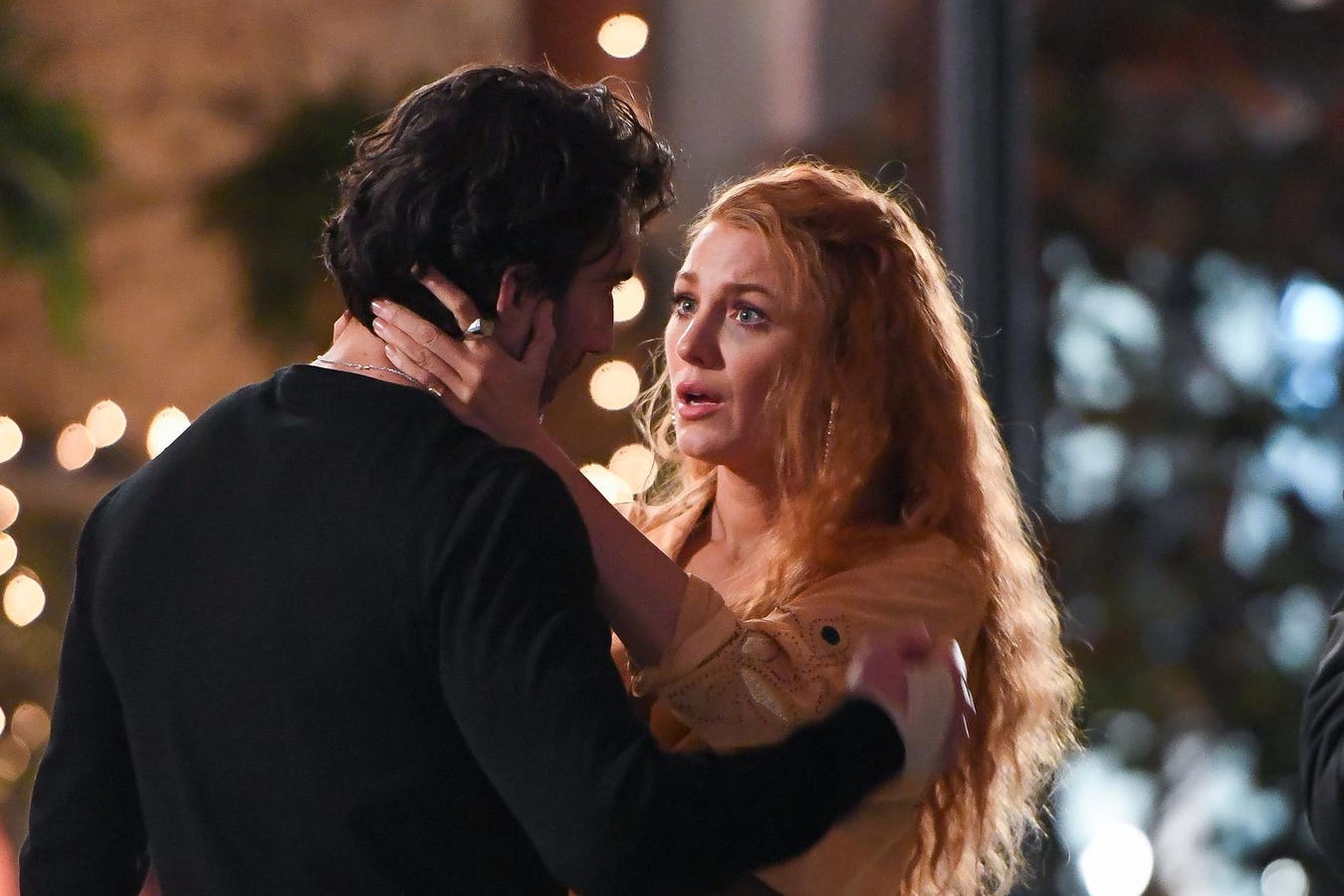The release of "It Ends With Us," a film adaptation of Colleen Hoover's bestselling novel, has been met with more than just excited anticipation. Instead, the film's press tour has sparked a whirlwind of controversy, prompting fans to dissect every interaction, social media post, and red carpet appearance.
From the initial casting announcement, which saw Justin Baldoni and Blake Lively taking on the roles of Ryle Kincaid and Lily Bloom, there was dissent among fans. Many argued that Lively and Baldoni, both significantly older than their characters in the book, were ill-suited for the parts. Further adding to the fan discontent were initial set photos, which showed Lively sporting outfits that many found inconsistent with "their Lily" from the book.
The drama escalated at the film's New York premiere, where Baldoni, unlike the rest of the cast, wasn't photographed with his co-stars, notably Lively. Instead, he was seen primarily with his wife, Emily. This trend continued throughout the press tour, with Baldoni attending events separately from his castmates, further fueling speculation about behind-the-scenes tension. Adding to the intrigue, none of the cast follow Baldoni on Instagram, further suggesting a rift within the group.
Lively, too, has come under scrutiny for her promotional approach, which some fans have deemed tone-deaf. Her constant references to her new haircare line and sparkling beverage company, coupled with her encouragement for fans to "wear their florals" to screenings in honour of Lily, a florist, have been met with criticism. Fans find these actions insensitive, given the film's heavy themes of domestic violence, and argue that Lively is misrepresenting the film as a light-hearted romance, while minimizing the serious themes of abuse it explores.
Some viewers have also expressed being unprepared for the film's intensity, feeling they weren't aware of its true nature. Meanwhile, Baldoni has been praised for openly discussing the film's subject matter and raising awareness about intimate partner violence. However, unverified rumours suggest that Baldoni may have been a challenging director to work with on set, adding further fuel to the rumour mill.
This fervent fan interest in the "It Ends With Us" drama stems from two key psychological factors:
1. Strong Parasocial Relationships: Fans develop intense, one-sided connections with celebrities, feeling personally invested in their successes, struggles, and conflicts. This emotional investment drives their desire to follow every detail of their favourite stars' projects.
The human yearning for transparency and authenticity adds another layer. Rumours of behind-the-scenes conflicts disrupt the idealized image fans have of their favourite stars, leading to increased scrutiny as they seek to uncover the "truth." This sense of entitlement to behind-the-scenes information arises from their deep emotional investment in these celebrities' careers.
Furthermore, research indicates that readers form strong attachments to fictional characters and stories, often seeing themselves represented in the protagonist. This personal connection, coupled with a desire for accurate representation of the source material, fuels their intense involvement in the film's narrative.
2. High Moral Standards: Celebrities are seen as role models, embodying admired qualities. When they fall short of these expectations, fans feel disappointed, disillusioned, or even betrayed.
This is particularly true when dealing with sensitive topics like domestic violence. Fans expect public figures to use their platforms responsibly, highlighting these issues with the necessary sensitivity.
When celebrities fail to meet these expectations, fans demand accountability, viewing it as a breach of trust built through years of media interaction.
The "It Ends With Us" controversy highlights the growing demand for authenticity and sensitivity from public figures. Fans' passionate reactions are not merely about casting choices or promotional missteps, but rooted in the understanding that storytelling holds transformative power, and with great visibility comes great responsibility.
Article
Entertainment

"It Ends With Us" Press Tour Drama: Why Fans Are Obsessed

